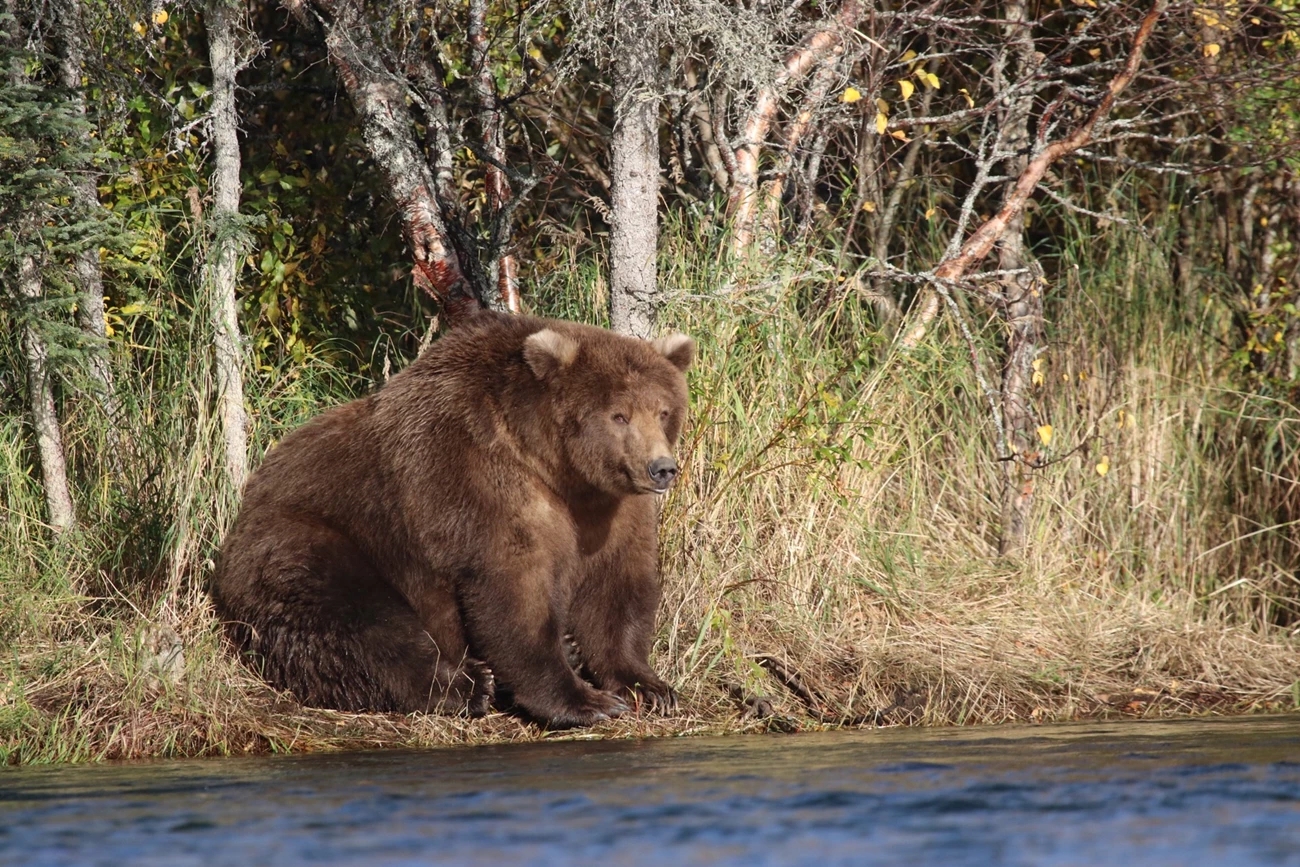Every fall, millions of Americans tune in to Fat Bear Week, the wildly popular online contest hosted by Katmai National Park and Preserve in Alaska. Viewers gawk at images of enormous brown bears who’ve packed on hundreds of pounds by slamming down salmon in preparation for winter hibernation. They cast votes, share memes, and celebrate the biggest, fattest bear.
The irony is striking. As a nation, we cheer on fat bears as symbols of strength and survival—yet stigmatize people, especially older adults, for carrying extra weight.
Fatness in Nature vs. Fatness in America
For bears, gaining weight is essential for survival. It signals health, preparation and resilience. But for humans, fatness has become a moralized condition. We’ve built a culture that equates larger bodies with weakness and failure. And older adults, in particular, bear the brunt of this stigma.
Nearly 42% of adults older than age 65 in the United States live with obesity. Yet older adults are too often excluded from obesity care, written off as “too old to benefit,” or told that extra weight is inevitable. In reality, obesity in later life drives serious health risks—from diabetes and hypertension to mobility limitations and cognitive decline. These risks compound existing inequities: older adults of color, rural residents and those with lower incomes face higher rates of obesity and less access to treatment.
What Fat Bear Week Reveals About Us
Our obsession with Fat Bear Week reveals a paradox: we admire fatness when it belongs to an animal, framed as purposeful and even endearing, but we recoil from it in our neighbors, family or even ourselves. That double standard speaks volumes about cultural stigma—and about how we have failed to see obesity in humans as shaped by systems rather than personal choice.
Unlike the bears, who fatten seasonally on salmon runs, humans live in environments of constant abundance and scarcity: cheap processed foods, unsafe streets that discourage walking, and health systems that don’t reimburse evidence-based obesity care. For older adults, Medicare’s failure to cover the full range of obesity treatments—including intensive behavioral therapy and access to FDA-approved medications—locks in inequity.
The Policy Solution We Need
The Treat and Reduce Obesity Act (TROA) is a bipartisan bill before Congress that would finally expand Medicare coverage for obesity care. It would allow older adults to access a broader set of treatments, including new anti-obesity medications and intensive behavioral therapy from qualified providers.
Passing TROA isn’t about vanity. It’s about dignity, health and equity. It would help older adults stay mobile, independent and engaged in their communities—reducing long-term health costs and supporting quality of life.
From Bears to People: Choosing Compassion
Fat Bear Week shows us that fatness can be reframed: not as shameful, but as a marker of resilience and adaptation. What if we extended the same compassion to people, especially older adults struggling against systemic barriers to health?
We don’t need to stop celebrating fat bears. But we do need to stop shaming fat people. And we need to start demanding policies—like TROA—that give older adults the tools they deserve to manage their health.
It’s time to turn our seasonal fascination into year-round action. Let’s channel the joy we bring to Fat Bear Week into real progress against obesity stigma and into policies that ensure every American, at every age, has a fair chance at health and dignity.
Patrice L. Dickerson is ASA’s Senior Equity Strategy Director.
Photo caption: Bear number 409 in Katmai National Park and Preserve, 2018 champion of Fat Bear Week.
Photo credit: Courtesy the National Parks Service.













